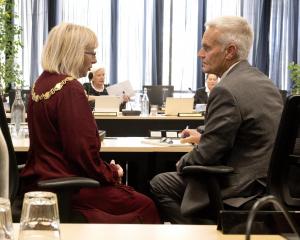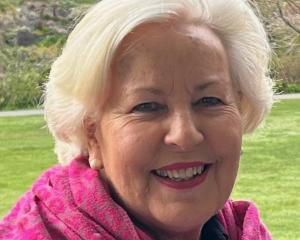
The Bill would be devastating for regional sports organisations and clubs in its current form, he said.
Sport Otago joined about 5000 interested parties in making a submission on the proposed Bill.
Nation said he commended the government’s efforts to regulate offshore gambling, but he was concerned there was no obligation in the Bill to return a portion of the profits to the community.
"To open the door to overseas operators whose sole aim is to generate profit, without any obligation to give back, is morally wrong and a departure from the principle of community reciprocity," the submission read.
"Without community reinvestment being mandated for overseas operators, the Bill risks deepening inequality — allowing profits to go offshore while the social costs of gambling remain in our vulnerable communities.
"If these overseas operators wish to profit from our communities, they must also contribute to their wellbeing. Anything less is exploitation."
Nation said the government appeared to have heard the concerns raised by the sporting community, and he was hopeful the select committee would adopt an amendment that would compel gambling operators to return a percentage of the profits to the community.

"There was a lot of noise around it.
"I think it certainly raised eyebrows and did change the rhetoric of what they were talking about.
"And I think those that were really close to it certainly noticed that there was a change in the focus from the Select Hearing Committee."
Nation said if the Bill went ahead as proposed, it would be a devastating blow for some sports clubs, who were already struggling with rising operational costs and declining revenue.
"I think you will see clubs folding because they are already under immense pressure.
"It will come down to essentially sports organisations having to put up their prices of what they are having to charge to participate.
"The members are the ones who will end up having to pay a lot more because there’s no class 4 coming in for uniforms, for travel and for all those things that keep a club humming."

Basketball Otago general manager Jodi Brown said in her submission the organisation received an average of $180,000 in class 4 funding each year.
Without that funding, "Basketball Otago simply would not be able to function at its current level, and the breadth of basketball opportunities in our region would be significantly reduced".
Hockey Otago said the $160,000 it got from class 4 funding "allows us to have the staff required to deliver for our community as well as to meet key operational costs".
"Without this funding, the cost to participants would be at a level that would not be accessible to many."
The Otago Cricket Association relies heavily on the funds as well. It receives on average $260,000 each year and shares the same concerns.
OCA operations manager Tim O’Sullivan said in the submission the funding had "helped us grow female participation in our sport with increases in engagement right across the cricket landscape".
The Kaikorai Rugby Football Club estimated it would have to increase fees from about $150 to about $450 per player if the class 4 funding dried up.
"An increase like this would result in a significant reduction to our player numbers and ability to field teams," the club wrote in its submission.
In the last financial term, Kaikorai accessed about $60,000 in funding.
"The Kaikorai RFC committee have worked hard to diversify our funding, so we are not solely reliant on any one area.
"Our clubrooms are hired to community and school groups [and] our facilities are well used by other sports including cricket, touch, athletics, football, netball and rugby league.
"At present, we are fortunate to be able to offer these groups an affordable rate to use our facilities.
"However, with the proposed reduction in availability of trust funding, our costs would increase, meaning in turn, any users of the club would have to be charged a significantly higher rate."
In 2024, $4.6 million and change was invested into sport in Otago from class 4 gambling.
That is funding which would have to be found elsewhere or passed on to the user.
The government is expected to make a decision on the Bill in mid-November.









